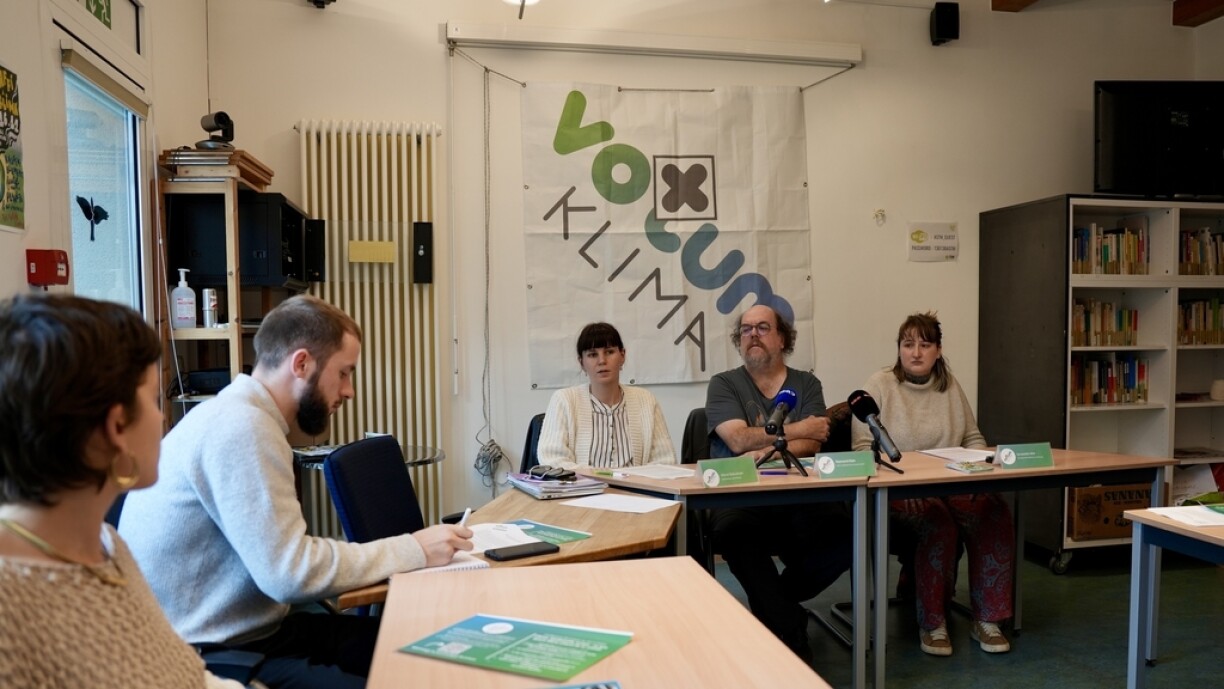
Presenting their demands ahead of the global summit, Votum Klima said that while many governments acknowledge the reality of climate change, too few are acting accordingly. Raymond Klein of Action Solidarité Tiers-Monde (ASTM) argued that a widespread attitude of resignation, with leaders admitting the problem but claiming they “cannot do more”, is one of the greatest obstacles today. He added that if governments simply committed to doing what is necessary rather than what is convenient, genuine progress could already be achieved.
The network, which brings together 15 organisations, insists that the international community must stay true to the commitments made in Paris: limiting global warming to 1.5°C, phasing out fossil fuels, and supporting developing countries financially.
Votum Klima believes that Luxembourg’s current contribution is far too low. Klein argued that industrialised nations have a duty to take responsibility towards countries in the Global South, a principle often referred to as “fair share”. He explained that the worldwide funding needs are estimated at around $1.3 trillion per year, and Luxembourg’s fair contribution would be roughly $600 million annually, about ten times more than the roughly $60 million currently put forward by the government.
The platform suggested several potential funding sources for climate action and compensation to countries most affected by global warming, including taxes on international air and maritime transport, profits from fossil fuel companies, and wealth taxes.
Although Luxembourg is set to present an ambitious climate policy in Brazil and is not performing badly in terms of emission reductions, Esmeralda Wirtz from Amnesty International Luxembourg stressed that official figures can be misleading. She pointed out that national statistics only count emissions produced within the country, not those linked to imported goods. Looking at the broader picture, she said, reveals that Luxembourg’s overall environmental footprint remains far higher than it appears.
Beyond financing, other major themes at COP30 include biodiversity, Indigenous rights, and the protection of local communities. Activists acknowledge that the global political context is challenging, with climate denial and shifting priorities in some major economies, and hope that the achievements of the Paris Agreement will not be undermined.
Holding the conference in the Amazon is seen as highly symbolic, though the choice of Belém has also drawn criticism due to inadequate infrastructure, with organisers reportedly chartering two cruise ships to house delegates.
For Votum Klima, however, civil society participation is essential. Altynaï Bidaubayle from Greenpeace said that delegates from Western countries are aware of the privilege of being able to attend such an event, and will use the opportunity to amplify messages of climate justice and maintain visibility in the negotiation corridors. In line with this goal, two of its members, Raymond Klein and David Hoffmann will travel to Brazil to follow the climate negotiations in person.
The platform also plans to hold a peaceful demonstration on 16 November at Place Clairefontaine in Luxembourg City to call for stronger action.